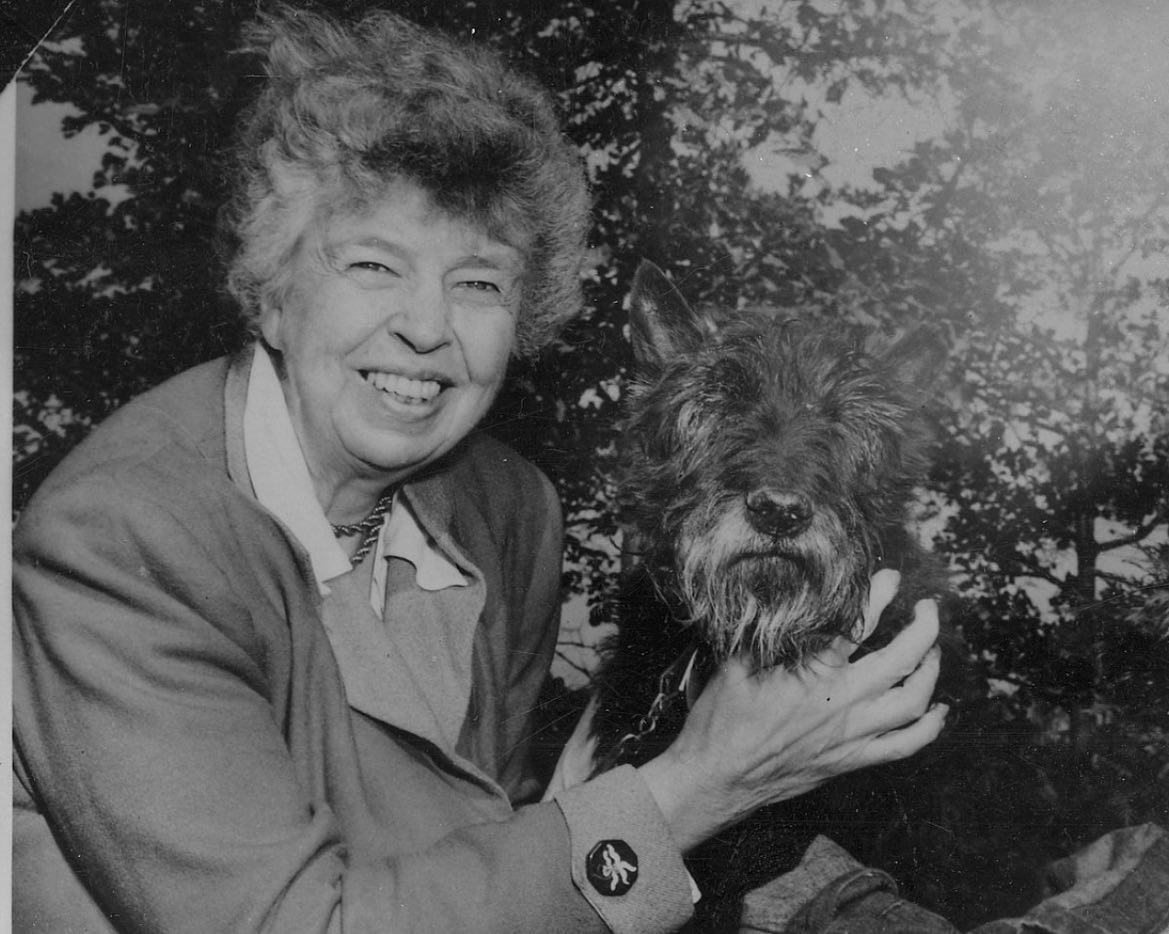
(Image from Wikipedia Commons)
It is a complete disservice to limit Eleanor Roosevelt to a blog post. This barely scratches the surface of an amazing human.
Political figure, diplomat, rights activist. Licensed pilot after Amelia Earhart snuck her from a White House dinner to fly. Spearheaded the UN Declaration of Human Rights. Fought for civil rights. She is an OG of social media influencers who created real, sustainable change.
First Chair of the Presidential Commission on the Status of Women, first U.S. Representative to the U.N. Commission on Human Rights. There are memorials and monuments to her all over the place, and the Eleanor Roosevelt Award for Human Rights honoring her efforts.
We are all asked to play roles throughout our lives. Sometimes it’s from expectations, sometimes it’s from love. Eleanor played many roles, but always used her influence and social status to greatly enhance human and civil rights.
Born Anna Eleanor Roosevelt in 1884, she always preferred to go by her middle name. She was nicknamed “Granny” as a child because she always acted so seriously. Losing her mother and father in her youth resulted in life-long bouts with depression. Her maternal grandmother raised her, but left her feeling insecure and starved for attention. Chastised for being an “ugly duckling", Eleanor responded with "no matter how plain a woman may be if truth and loyalty are stamped upon her face all will be attracted to her."
Her finishing school educator cultivated independent thinking in young women, which allowed her to come into her own. She described her debutante ball as utterly boring, but she played the role for a day. Teaching dance and calisthenics in a New York east side slum brought disdain from some in her family’s social circle, but she would have none of that.
She married her fifth cousin, Franklin Delano Rosevelt, in 1905, over the objections of his mother, who maintained a contentious relationship with her. Later, she discovered love letters between her husband and another, but they remained in their roles as that relationship was buried. Eleanor took to more public engagement and social work after this.
Franklin’s well-known paralytic illness began in 1921. Her mother-in-law wanted him to quit politics; Eleanor and Franklin chose otherwise, and Franklin became a three-term American President. Eleanor and Franklin developed a property where she implemented programs like winter jobs for rural workers and women, picnics for delinquent boys, and educator and librarian actions.
Her rise through activism continued throughout her life. She used her character and influence to support the civil rights movement, reframing some of the New Deal Program that were unfair to minorities and women, pushing for equal benefits and pay. When a prominent black singer wasn’t allowed to perform at a Washington, D.C. concert venue, Eleanor arrange for the show at a similar location.
She lobbied to make lynching a federal crime. Spoke out often about the horrible treatment of Japanese-Americans who were imprisoned during World War II. She was highly effective in utilizing the media and the press for social change. That landed her on the post-World War II list of FBI targets to attack for what was viewed as “Communist Acts”.
Throughout all of this, she played roles while sticking to her core desire of making the world a fair and better place for all. Her successes are legendary.